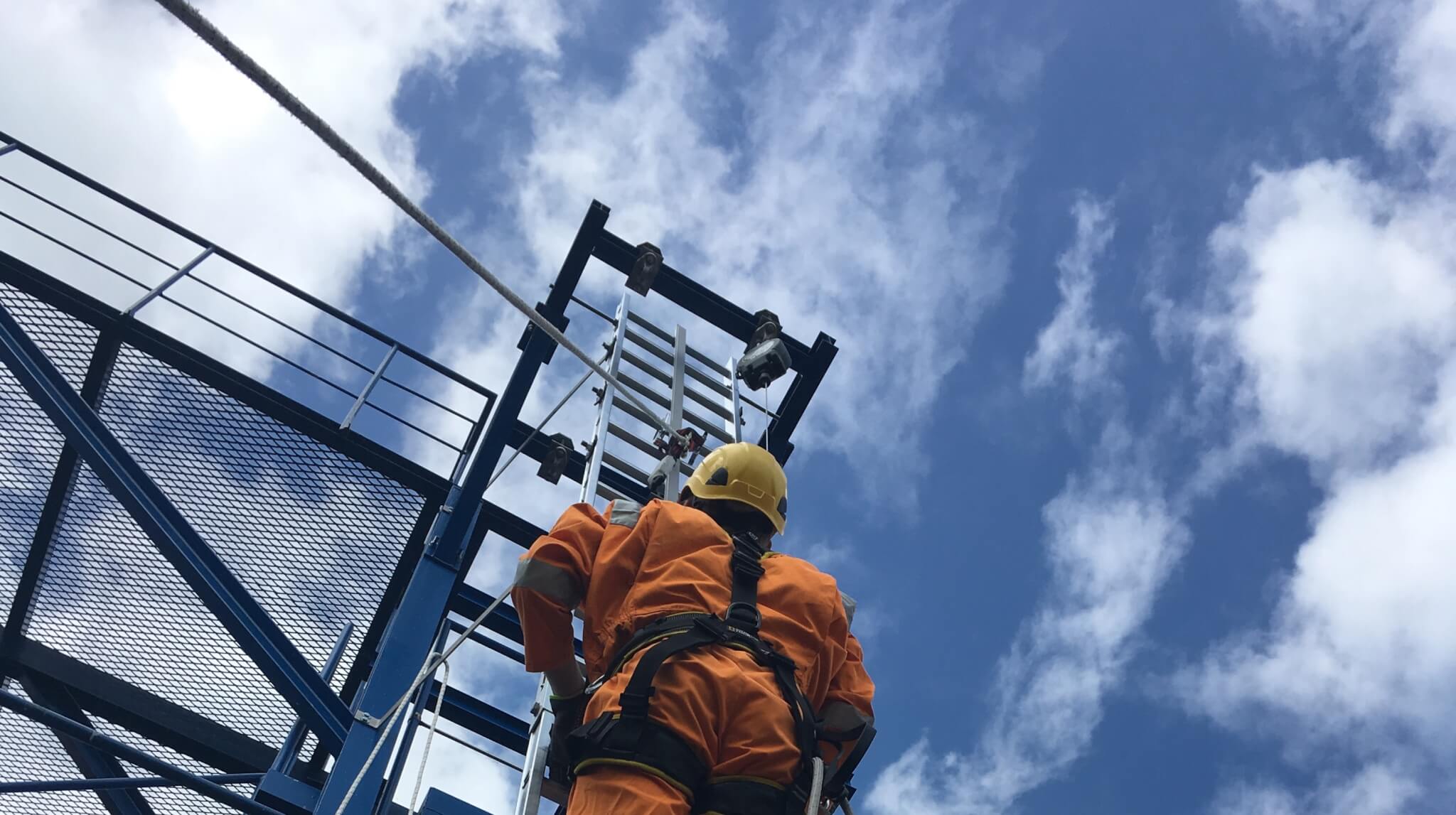BOTC: Panoramic view at 100 metres – a common site for wind power professionals
For some professionals in the wind energy industry, operating offshore or at a height of 100 metres is an almost everyday working environment. Proper preparation, safety and experience in managing emergencies are important requirements for any plant maintenance employee.

The qualified wind energy specialists in Lithuania are trained to work in high risk environments by the Baltic Offshore Training Centre (BOTC), a member of the Lithuanian Wind Power Association and a leading company in the Baltic Region. The company, which started its operations in Lithuania a year ago, has already trained more than one hundred qualified specialists to work in wind power plants, both onshore and offshore.
“The size of the global wind power market is increasing very fast. The lack of personnel causes anxiety and urges to ring the alarm bells. According to European Energy Agency, it is expected that the number of jobs in the sector will double within the next 3 years. At a European level, wind energy will provide for approximately 500,000 jobs by 2030,” said Richards Stalmanis, Head of the BOTC.
According to the representative of the company, the lack of manpower can have negative impact on the development of wind energy sector and will be one of the challenges of transition to renewable energy.
Power plants are not only monitored by turbine technicians
“The wind power industry employs professionals from various fields – wind turbine technicians, electricians, mechanics, logistics specialists, crane operators and drone pilots to test power blades, and even medical personnel, if necessary. All of these professionals must complete basic safety training to become familiar with the safety procedures required in their daily operations. The specialists are prepared to manage emergency situations, in order to ensure the maximum preparedness of the employees for all possible situations,” said Richards Stalmanis, Head of the BOTC.
According to him, even more specialists and training programmes are needed when working in offshore power plants, because the maintenance is a bit more complex than in the plants operating onshore. In the event of a failure or to complete preventive work, additional water or air transport systems must be used, which means that more employees are involved. In addition, the work of the specialists and the maintenance of wind turbines are greatly influenced by the weather conditions.


Preparation for rescue operations
When dealing with failures or emergencies, these professionals often find themselves at high altitudes, not just on the high seas. According to Stalmanis, in such a working environment it is vitally important to comply with the safety requirements and ensure smooth teamwork. “A safety training course is required to prepare the employees for working in such an environment and to properly assess the emerging risks. In addition to properly maintaining the wind plants, wind turbine technicians must be able to provide first aid, to be ready for rescue operations and to know how to avoid harming themselves and their colleagues in such situations,” said the BOTC representative.
The core safety training programme consists of five modules: First Aid, Working at Heights, Fire Awareness, Manual Handling and Sea Survival. In order to better prepare the specialists for the real life situations they will encounter at work, a variety of practical tasks are performed that expose the participants to simulated specific emergency situations.

Certificate that opens doors worldwide
The BOTC is a certified training provider based on the standards established by the Global Wind Organisation (GWO). Data on the participation of the specialists in the training programme is stored in the global GWO database, so that after completing the course they can work in the wind energy sector not only in Lithuania but also worldwide. According to the company’s representative, the BOTC certificates are valid in the European Union and Asian countries, as well as in the United States, and Australia. With this certification, specialists can work for the leading wind energy companies.
The BOTC started its activities in Lithuania in Spring 2018, and has established a close cooperation with the Klaipeda Shipping School where its training facilities are currently established. The representative of the BOTC revealed that the company is planning to expand the range of services it currently provides. The company intends to go beyond safety training and to start technical training for wind turbine technicians, both offshore and onshore.
Post a comment
You must be logged in to post a comment.


